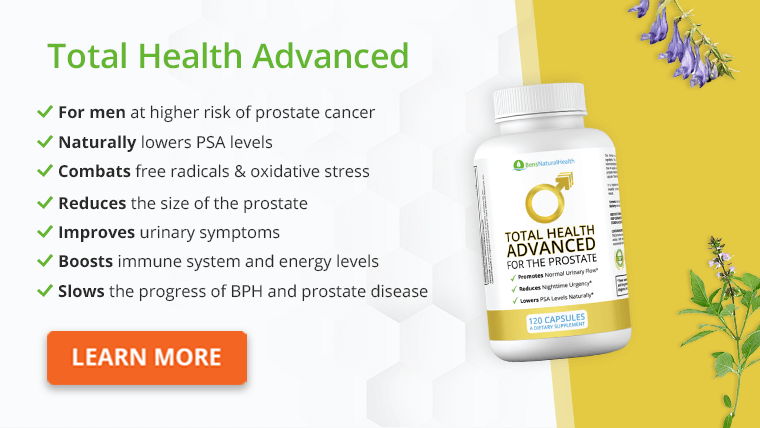Getting diagnosed with cancer can be a great setback.
The mere word “cancer’ can give you goosebumps.
Breaking the news of prostate cancer can be pretty scary and might make you angry or stressed.
And coping with this new diagnosis can be a challenge.
Learn ten ways of coping with a new diagnosis.

10 tips for coping with a new prostate cancer diagnosis
1) Make Everything Clear: Know About Your Cancer
When you visit your doctor and they inform you about the presence of prostate cancer cells, you must ask questions.
It might take some courage to ask about your disease, but we suggest you take that leap of faith and ask!
Make clear how much the disease has progressed and what further complications are expected to arise.
You can check for the extent of the disease by using the Gleason score.
Instead of painting a false picture, be clear about your present state.
You should freely ask questions on every visit.
This will keep you free of ambiguities and help you know what to expect.
2) Trust Your Medical Team
Trust is the backbone of a patient-doctor relationship.
Research suggests that trust and doctor-patient communication is important for patient satisfaction.
It is believed that a strong patient-doctor relationship can even carry therapeutic value.
Your medical team will likely look for prostate-specific antigen by performing a PSA test to detect cancer cells.
The PSA test is designed to distinguish prostate cancer from an enlarged prostate (benign prostatic hyperplasia).
To have the best treatment and minimal stress, you must trust and find comfort in the healthcare team.
3) Do Some Research
The evolution of fast-speed internet has led to loads of data being available at just a click of a button.
To be completely aware of the extent of disease and treatment options, do some research on the internet.
However, internet data can be misleading at times, but we suggest looking for home remedies.
Anxiety and depression link with a prostate cancer diagnosis.
Research shows that there is a high prevalence of anxiety and depression after a prostate cancer diagnosis.
You should search out home remedies to cope with anxiety.
4) Talk To Your Loved Ones
An effective way of venting out your emotions is talking to someone.
Having the assurance of love from your coterie and family can matter a lot.
Talking to a cancer survivor can mean a great deal of motivation for you.
It is believed that stress reduces with communication.
When you communicate and tell your loved ones about your feelings, you should feel light and burden-free.
5) Get Counselling
When stricken with the grief of cancer, counseling can be very useful.
It not only helps in your fight against anxiety but also aids in enhancing treatment.
As per a report, a counseling program for cancer patients leads to improved patient-related outcomes.
A professional counselor can help you organize your thoughts and achieve a good quality of life.
6) Analyze Your Financial Conditions
Prostate cancer can lead to a financial burden for the patient and their family.
In addition to the cost of medicines/therapy, absence from work surely compromises financial conditions.
A clear analysis of your financial position allows you to manage and access treatment options.
You should contact your insurance company and ensure maximum insurance coverage.
7) Look For Additional Support
Extending social support to cancer patients can mean a great deal.
Studies show that social support, in addition to medical support, is pretty beneficial for cancer patients.
You can take help from online support groups where like-minded people can share your anxiety and feelings.

8) Eat Healthy Foods
One of the best ways of coping with a new prostate cancer diagnosis is by eating healthy.
Consuming a healthy, balanced diet can help you fight cancer early on.
Load up on fruits and vegetables containing phenols and vitamins to your anti-cancer diet.
Using green tea regularly can be a strong anti-cancer step.
In addition to fighting cancer, these foods can be a great way of combating depression.
Get Your FREE PSA Lowering Diet Plan!
- Naturally lower PSA levels
- Reduce nighttime trips to the bathroom
- Enjoy better bladder control and urine flow
9) Try To Be As Active As Possible
Newly diagnosed prostate cancer patients should adopt an active lifestyle.
Studies show that exercise reduces stress and anxiety.
Incorporating light exercise is important because evidence shows that physical exercise reduces cancer incidence and also lowers the risk of recurrence.
As per a systematic review and meta-analysis, exercise can reduce cancer-related fatigue.
10) Find comfort in survival rates
One of the aspects of prostate cancer you should know is that it is usually slow-growing.
Many patients with prostate cancer die from different causes.
Overall, the 5-year survival rate can be near 100% in some cases.
Conclusion
Almost every 1 in 8 men is diagnosed with prostate cancer.
The time of prostate cancer diagnosis can be pretty harsh for many patients.
Stress, anxiety, and fatigue are common in cancer patients with a new diagnosis.
But, to cope with this early diagnosis of prostate cancer, you should communicate with your loved ones, take counseling, and have faith in your medical team.
In addition, eating and living healthy can be beneficial in coping with stress and improving quality of life.
Explore More








